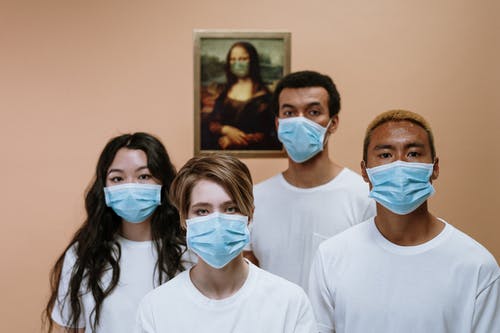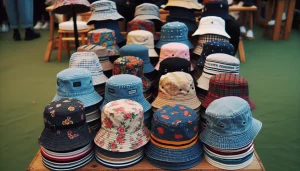
How to Save Big on Dog Bandanas with Bulk Buys: A Complete Guide
Are you a fan of dressing up your furry friend in stylish bandanas? If so, you know how quickly the costs can add up. But


Everything You Need to Know to Stay Healthy During the COVID-19 Pandemic . . . and Where to Get Face Masks and Hand Sanitizer
So we’ve all seen the news, and we’re all aware of the panic and hysteria – some of it justified, some of it not. This novel coronavirus is indeed something to be concerned about, and, no doubt, we should all do what we can to avoid it. Ultimately, though, it turns out that taking reasonable precautions and exercising some common sense are the best tools for fighting the person to person spread of the coronavirus and avoiding COVID-19.
How Bad Is It and Will It Get?

The answer you get to this question depends on whom you ask, where they got their information, and what their agenda is. Most rational estimates now say that the virus is about 10 times deadlier than the flu. But that figure pales when you compare it to the mortality rate for, say, SARS and Ebola.
So is the coronavirus in the USA a pandemic—or will it be soon? Well, not if you compare it to the 1918 Spanish flu pandemic. Still, the numbers aren’t good.
According to one reputable source, “[a]s of March 22, there were at least 24,380 confirmed cases of COVID-19 – the disease caused by the novel coronavirus – in the U.S., resulting in a minimum of 340 deaths. In the past few days, the rate of diagnosis has accelerated dramatically, with several hundred new cases being identified each day. However, officials have warned that due to delays in testing, the number of infected individuals is likely much higher, with scientists estimating that for every confirmed case, there are likely another five to 10 people with undetected infections.” That’s pretty alarming (especially when you factor in all the economic fallout), but not as bad as we’ve seen in past viral outbreaks.
A lot of headlines lately are pretty terrifying, for example:
But . . .
“Michael Levitt, a Nobel laureate and Stanford biophysicist, began analyzing the number of COVID-19 cases worldwide in January and correctly calculated that China would get through the worst of its coronavirus outbreak long before many health experts had predicted.
“Now he foresees a similar outcome in the United States and the rest of the world.
“While many epidemiologists are warning of months, or even years, of massive social disruption and millions of deaths, Levitt says the data simply don’t support such a dire scenario — especially in areas where reasonable social distancing measures are in place.”

What Are the Symptoms of COVID-19?
Although some of the dire predictions may be a bit overblown, vigilance, caution, and stringent protective measures are still called for. And we can start by being aware of the symptoms of COVID-19.
Symptoms, of course, can vary widely from individual to individual – from (according to the CDC) “mild symptoms to severe illness and death.” The most common early symptoms due to this respiratory illness, after the initial incubation period of 2 to 14 days after exposure, typically include:
People who experience more severe symptoms – “emergency warning signs for Covid-19” – should seek medical attention immediately. Call your doctor if the following symptoms appear:
“According to the WHO, the most common symptoms of Covid-19 are fever, tiredness and a dry cough. Some patients may also have a runny nose, sore throat, nasal congestion and aches, and pains or diarrhea. About 80% of people who get Covid-19 experience a mild case – about as serious as a regular cold – and recover without needing any special treatment.
“About one in six people, the WHO says, become seriously ill. The elderly and people with underlying medical problems like high blood pressure, heart problems or diabetes, or chronic respiratory conditions, are at a greater risk of serious illness from COVID-19.”
What You Can Do to Protect Yourself

Because there is currently no vaccine or particularly efficacious treatment for the coronavirus 2019, the best thing you can do is take all the steps you can to avoid exposure to the virus.
This virus is spread primarily (consensus has it) through close personal contact. When infected people cough or sneeze, nearby uninfected people breathe in the droplets or aerosol thus produced and so become infected themselves. So avoid going out in public if at all possible to completely avoid community spread. But if you do have to, maintain a distance of at least 6 feet between yourself and other people, and be sure to wear (at a minimum) a disposable face mask.
Here’s what else the CDC website recommends . . .
We also have a responsibility to protect other people. And that means doing the following if you are sick:
A Valuable Lesson From 1918
There may be another very simple yet effective thing you can do to avoid or recover from COVID-19. This was something discovered by healthcare personnel in 1918 during the influenza pandemic. It’s simple, free, and available to everyone . . . sunshine and fresh air.
“Put simply, medics found that severely ill flu patients nursed outdoors recovered better than those treated indoors. A combination of fresh air and sunlight seems to have prevented deaths among patients; and infections among medical staff. There is scientific support for this. Research shows that outdoor is a natural disinfectant. Fresh air can kill the flu virus and other harmful germs. Equally, sunlight is germicidal and there is now evidence it can kill the flu virus.”
Of course, these outcomes may be attributable to nothing more than those patients not being overcrowded into hospitals with thousands of other sick people. Still, it could be one more weapon in your arsenal to fight coronavirus. Just be sure to wear your face mask when you go out.
An Alternative Face Mask

Yes, we are aware that disposable face masks are in abysmally short supply right now in many areas. But you do have an alternative – scarves and bandanas.
Here’s what the CDC says . . .
“In settings where facemasks are not available, [healthcare personnel] might use homemade masks (e.g., bandana, scarf) for the care of patients with COVID-19 as a last resort. . . . Homemade masks should ideally be used in combination with a face shield that covers the entire front (that extends to the chin or below) and sides of the face.”
Our affordable 22″x22″ and 27“x27” bandanas, available in a wide variety of patterns and prints, will serve admirably in this role. While the CDC does advise caution with the use of this kind of alternative face mask, bandanas do provide some measure of protection. And when a bandana is used in conjunction with a face mask, it becomes a more effective preventive measure due to the double protection.
WholesaleForEveryone.com Keeping You Safe and Healthy
The coronavirus disease is not to be taken lightly. And the way to pull through the current worldwide COVID-19 pandemic is through practicing humanity and immediately cooperating with Centers for Disease Control and Prevention (CDC) recommendations. That’s why wholesaleforeveryone.com is offering disposable face masks (as quantities become available), bandanas, and soon hand sanitizer for purchase at affordable discounted prices.

The nationwide shortage of face masks due to vendors selling out of supplies has left healthcare providers and other frontline workers in desperate need of preventive wear. Fortunately, wholesaleforeveryone.com has located a supplier and now has these life-saving devices for sale. While supplies last, wholesaleforeveryone.com will be making cases of disposable face masks available for purchase. We are also selling bandanas that can be used as a supplementary or backup protective measure against the coronavirus in the USA.
These 3-ply disposable face masks, equipped with comfortable ear loops, are currently available only in cases, but smaller quantities will be available for purchase soon. They are soft and easy to breathe through, fluid-resistant, and help filter out both irritants and pathogens. Orders of 10 or more cases come with a full 25% discount.
And right now we are working to provide the absolute best in face masks. Our immediate plans include making available sterile masks, medical masks, and N95 masks, along with smaller quantities of disposable face masks and hand sanitizer.
Email subscribers will get an email notice the second these become available.
Stay Connected With Us via Social for COVID-19 Updates
Right now, our top priority is to provide customers with the products and information they need to keep themselves and their families safe and healthy. Thus, we ask that you stay connected with us via social for the latest updates and information on how to best navigate this sensitive time.


Are you a fan of dressing up your furry friend in stylish bandanas? If so, you know how quickly the costs can add up. But
Bandanas are a versatile and trendy accessory that can elevate any outfit. From headbands to neckerchiefs, there are countless ways to wear and style a
Bucket Hats: Discover the Latest Trendy Designs Bucket hats have become increasingly popular in recent years as a trendy accessory. These stylish hats are not

The ultimate guide to rocking the trendy bucket hat styles. Elevate your fashion game with versatile and stylish bucket hats. Click here for fashion inspiration and tips!
Discover the best places to buy bandanas and find your unique bandana style. Explore the wide range of designs and styles available at Wholesaleforeveryone.com and get free shipping on orders over $35
Discover how to create a stylish and versatile wardrobe with tops. Elevate your outfits and transform your style with the right tops. Click here to learn more.